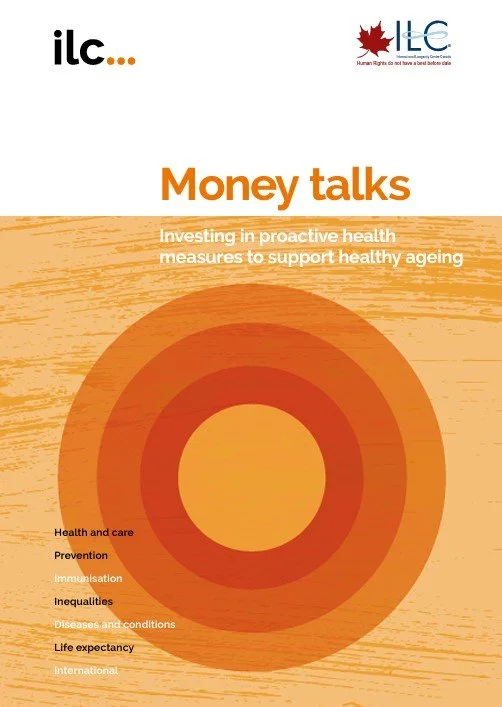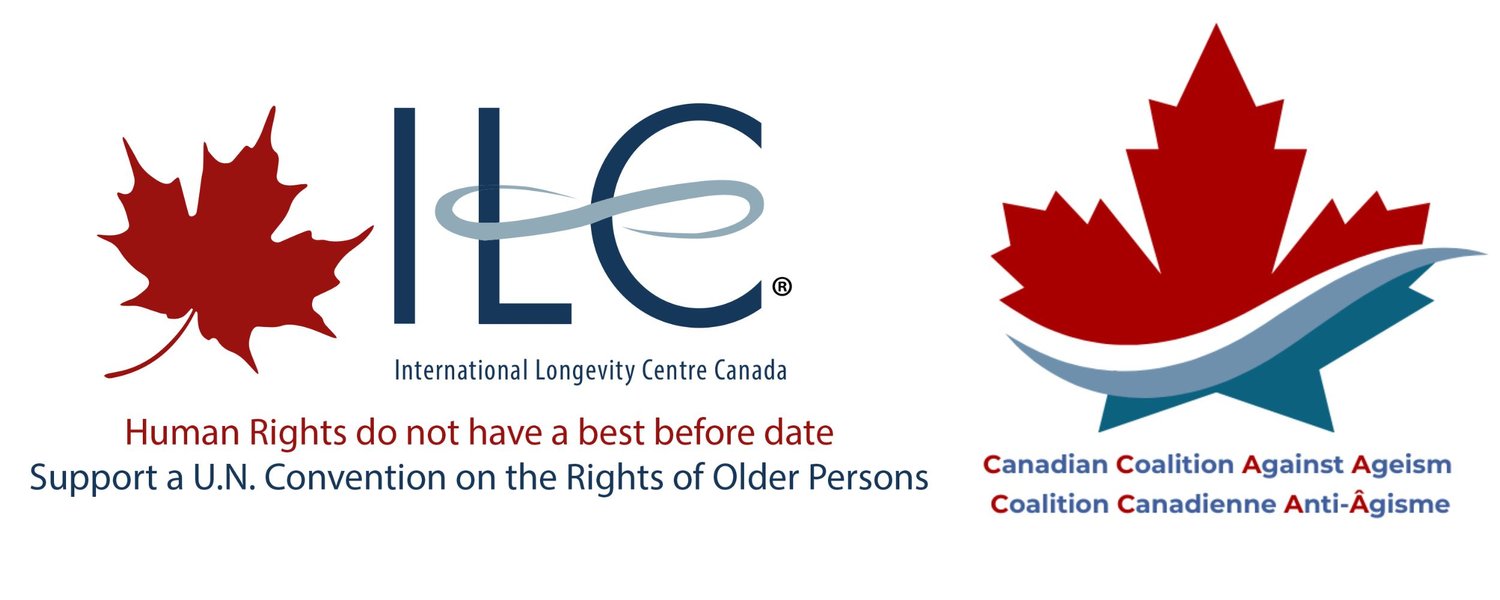Articles by Our Team
-
Older persons with mental health conditions in situations of risk and humanitarian crises:
Contribution of the WPA-SOAP and IPA

-
Older persons in climate change-induced hazards and building forward better:
International psychogeriatric association, world psychiatric association-section of old age psychiatry, and NGO Committee on Ageing in Geneva position statement
Read the paper.
-
Report on Violence, Abuse and Neglect of Older Persons
International Longevity Centre Canada, Canadian Network for the Prevention of Elder Abuse and Elder Abuse Ontario have released the Report on Violence, Abuse and Neglect of Older Persons. Input into the Report of the UN Independent Expert on the Enjoyment of All Human Rights By Older Persons To the 54th Session of the Human Rights Council.

-
WPA_SOAP and IPA Joint Statements
International Psychogeriatric Association (IPA) and the World Psychiatric Association-Section of Old Age Psychiatry (WPA-SOAP) have released a series of statements.
Call for input on the Right to Health and Access to Health Services
Older persons with mental health conditions in situations of risk and humanitarian crisis
Call for input on the Social Inclusion
Response to the call for inputs on violence against older persons
The right to education throughout the life course, advances and challenges
Older persons in climate change-induced hazards and building back better
Physical Restraint in Older People

-
Person-centred long-term care for older persons
Excited to share the news of the launch of a new Lancet Commission on human-rights based and person-centred long term care, co-chaired by Kiran Rabheru & Anne Margriet Pot.

-
Why we Need a UN Convention
The rights of older persons should be established in international law at the United Nations. Ageism is considered the third most important “ism” in western societies. It relies on false beliefs, on prejudices, on negative stereotypes essentially based on age which open the door to various forms of exclusion and the discrimination of older persons. Even here in Canada, there is a cost related to age-based prejudice on older workers and on the economy. There are challenges faced by older people in hospitals, and there is a need for an approach that respects the rights of older persons and their access to good care. And research demonstrates that stereotypes steal the voices of older people in care, particularly those with dementia, through the loss of control over their lives and their privacy. Read here.

-
Protecting the Rights of Older Persons
In Europe last year, a number of newspapers and social media outlets laid the blame for the decision of British voters to leave the European Union on older people. One magazine even suggested that the pensioners’ right to vote should be taken away. So outrageous did the scapegoating get that the United Nations Independent Expert on the Enjoyment of All Human Rights by Older Persons felt compelled to speak out in the press and tell Europeans to get a grip.
This readiness to target older people as the cause of Brexit represents a face of ageism, an insidious and costly form of discrimination prevalent throughout the globe. When they’re not dealing with ageism, many older people must endure conditions of abject destitution. Indeed, older people are among the poorest people in the poorest countries of the world. According to the International Labour Organization, half of the older people in the world receive no pensions whatsoever. Many others receive pensions that are grossly inadequate. Read here.

-
Ageism & COVID-19
This commentary discusses how older people are misrepresented and undervalued in the current public discourse surrounding the pandemic. It points to issues in documenting the deaths of older adults, the lack of preparation for such a crisis in long-term care homes, how some ‘protective’ policies can be considered patronising and how the initial perception of the public was that the virus was really an older adult problem. Read here.

-
The Spectrum of Ageism, Mentalism, and Ableism: Expressions of a Triple Jeopardy
The American Journal of Geriatric Psychiatry. By ILC Canada Board Chair, Kiran Rabheru.
-
Navigating the Perfect Storm of Ageism, Mentalism, and Ableism: A Prevention Model
The American Journal of Geriatric Psychiatry. By ILC Canada Board Chair, Kiran Rabheru, and ILC Canada President, Margaret Gillis.
-
ILC Canada Report
Thematic Report on the Human Rights of Older Women for the 76th Session of the United Nations General Assembly. Read here.

-
ILC Canada Report
Thematic Report on Ageism and Age Discrimination for the 76th Session of the United Nations General Assembly. Read here.

-
Protecting Human Rights During and After COVID-19: Challenges to the Human Rights of Older People in Canada
ILC Canada: A Report to the UN Rights Council, June 2020.

-
Money Talks: Investing in Proactive Health Measures to Support Healthy Ageing
Report by ILC UK and ILC Canada, November 2021.

-
Combating Agesim, Mentalism and Ableism: It's time for a United Nations Convention on the Human Rights of Older Persons
The American Journal of Geriatric Psychiatry, October 2021 Issue.
Articles by ILC Canada’s Dr. Kiran Rabheru.
Read the collection here.

-
An international consensus statement on the benefits of reframing aging and mental health conditions in a culturally inclusive and respectful manner
Published online by Cambridge University Press: 26 May 2022
Carmelle Peisah, Carlos A. de Mendonça Lima, Liat Ayalon , Debanjan Banerjee, Diego De Leo, Tzung-Jeng Hwang, Manabu Ikeda, Dilip Jeste, Tomas Leon, Huali Wang, James Warner and Kiran RabheruRead the article here.

Articles by Our Partners
-
Ageism Report #2
The Ageism Committee of NCJWC continues to explore issues of Ageism.
They are pleased to present their Ageism Report #2.
Read the latest Brief addressing the issue of isolation!

-
Cooking up Calm
The Living Well Research Team from Canada, Brazil and Portugal investigated the impact of strategies for minimizing anxiety after social distancing. Our findings were compiled into an electronic booklet called "Cooking up calm" accessible here:
https://rtoero.ca/mentally-healthy-living/

-
Report on the National Consultation on Ageism
The Forum of Federal, Provincial and Territorial (FPT) Ministers Responsible for Seniors (Seniors Forum) has been working to address the social and economic impacts of ageism on older adults in Canada. The World Health Organization defines ageism as “the stereotypes (how we think), prejudice (how we feel) and discrimination (how we act) towards others or oneself based on age.” As a part of the FPT Seniors Forum’s work, feedback was sought from Canadians to better understand the impacts of ageism at the individual level, and at the community level.

Media Articles
-
International Perspectives on Aging by Satya Brink
The study of aging is continuing to increase rapidly across multiple disciplines. This wide-ranging series on International Perspectives on Aging provides readers with much-needed comprehensive texts and critical perspectives on the latest research, policy, and practical developments. Both aging and globalization have become a reality of our times, yet a systematic effort of a global magnitude to address aging is yet to be seen. The series bridges the gaps in the literature and provides cutting-edge debate on new and traditional areas of comparative aging, all from an international perspective. More specifically, this book series on International Perspectives on Aging puts the spotlight on international and comparative studies of aging. Read here.

-
Ageism: A Global Challenge
If the world is a global village, this is perhaps no more evident than in the phenomenon of aging and ageism. In developing and developed countries alike, stereotypes, discrimination, and loss of civil rights for older persons are serious problems. Given increased longevity and lower fertility rates, older persons represent a significant part of every population and call for an energetic response. From the UN and WHO to Leading Age, a remarkably diverse number of organizations are working at many levels to combat ageism in most corners of the globe. Read here.

-
Gender and Aging Charter
Gender and Aging was the theme of the 2nd International Longevity forum which brought together more than 30 experts to debate and provide recommendations, expressed in the “Gender and Aging Charter”. Read here.
-
The Rio Declaration: Developing a Culture of Care in Response to the Longevity Revolution
To advance the debate on global culture of care, two connected international forums were held in 2013 which resulted in the Rio Declaration. Read here.
-
Capetown Declaration on a Global Response to Dementia
The ILC Global Alliance calls for a global response to dementia. The projected global increase in the incidence of dementia, from 35.6 million cases in 2010 to 115.4 million by 2050, requires an urgent and comprehensive global response, according to a consortium of international organisations. Read here.

